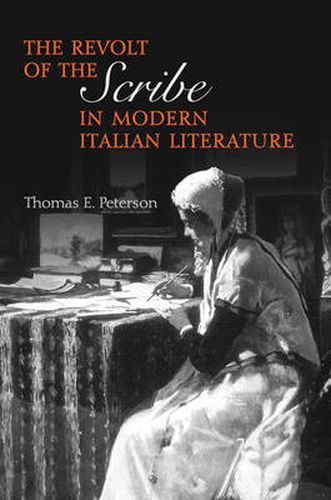Readings Newsletter
Become a Readings Member to make your shopping experience even easier.
Sign in or sign up for free!
You’re not far away from qualifying for FREE standard shipping within Australia
You’ve qualified for FREE standard shipping within Australia
The cart is loading…






The Revolt of the Scribe in Modern Italian Literature offers a perceptive re-assessment of Italian literary culture, focusing on the nature of modernity through the literature of those who revolt against established norms and expectations. By exploring selected works from authors such as Deledda, Foscolo, Ungaretti, Bertolucci, and Valeri, Thomas E. Peterson considers the categories of vatic poetry, the feminine voice, and the writings of those situated on Italy’s cultural periphery.
As practitioners of literary Italian, Peterson argues that these authors are conscious of their role in preserving both language and tradition during a period of great upheaval and national transformation. At the same time, they use their writings to move towards change, combat alienation, and reconfigure the self in relation to the community. In treating the act of authorship in terms of its cultural and didactic significance, Peterson successfully bridges the gap between traditional literary critical monographs and the trend toward cultural studies.
$9.00 standard shipping within Australia
FREE standard shipping within Australia for orders over $100.00
Express & International shipping calculated at checkout
The Revolt of the Scribe in Modern Italian Literature offers a perceptive re-assessment of Italian literary culture, focusing on the nature of modernity through the literature of those who revolt against established norms and expectations. By exploring selected works from authors such as Deledda, Foscolo, Ungaretti, Bertolucci, and Valeri, Thomas E. Peterson considers the categories of vatic poetry, the feminine voice, and the writings of those situated on Italy’s cultural periphery.
As practitioners of literary Italian, Peterson argues that these authors are conscious of their role in preserving both language and tradition during a period of great upheaval and national transformation. At the same time, they use their writings to move towards change, combat alienation, and reconfigure the self in relation to the community. In treating the act of authorship in terms of its cultural and didactic significance, Peterson successfully bridges the gap between traditional literary critical monographs and the trend toward cultural studies.